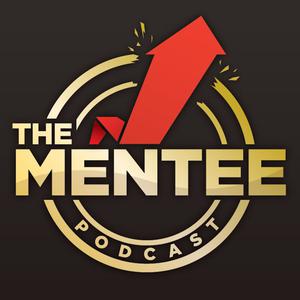
The Mentee Podcast
Geoff Woods
The Journey From Employee to Entrepreneur with Geoff Woods
- 56 minutes 15 secondsS5E73: From Trailer Parks to Real Estate Empire with Brooke and Christian Torres
In this episode, I have the pleasure of sharing a recent conversation I had with Brooke and Christian Torres. With years of experience in the trailer park industry and real estate investment world, they started their own business and quickly scaled an impressive real estate portfolio consisting of trailer parks and RV resorts across the country.
Today, they share their story, including growing a trailer park portfolio to $100 million in one year's time. This husband and wife duo bring an incredible energy and drive to the table that is sure to captivate you. Join me for this informative and exciting conversation!
Here are some power takeaways from today’s conversation:
- The power of being relational
- Lessons learned from hiring a contractor
- Flipping a trailer park portfolio
- Tapping into the power of mentorship
Episode Highlights:
[10:09] The Power of Being Relational to Become Transformational
When it comes to building relationships, focusing on commonalities is key. By avoiding transactional interactions and instead seeking to connect with others on a deeper level, you open up the potential for long-lasting and meaningful relationships. Whether you're living in a high-end building like the Porsche Design tower, or simply meeting new people in your day-to-day life, take the time to ask questions and show interest in their lives and this will lead to unexpected opportunities. Rather than forcing transactions, let trust and connection grow naturally over time. This approach can lead to lifelong connections with high-performers and successful individuals who can help you achieve your goals.
[33:54] Flipping a Trailer Park Portfolio
Brooke and Christian's experience in growing a trailer park portfolio can be attributed to their prior success in business. As co-CEOs of a company focused on RV resorts and mobile home parks, they were able to increase revenue from $6 million to over $25 million in just two years. The company had a portfolio valuation of $100 million when they joined, and Brooke and Christian leveraged their skills to take it to an impressive $400 million valuation. Their commitment to building the company over two years resulted in annual revenue of $25 million. This experience gave them the expertise and confidence to start their own business and scale it rapidly to become industry leaders.
[37:32] How Brooke and Christian Leveraged Their Past to Build a Trailer Park Portfolio
Brooke and Christian's experience in scaling a company provided them with invaluable knowledge about what not to do. They used this insight to approach their own business with a clear plan of action. After taking massive action, they repositioned properties that they knew fit the model of a successful company they had previously worked with. This allowed them to accumulate a valuable portfolio that was attractive to potential buyers. Ultimately, they sold $78 million worth of their portfolio to the other company, while keeping three properties for themselves. Their ability to learn from past experiences and leverage that knowledge enabled them to build a profitable trailer park portfolio.
Resources Mentioned:
Connect with Wyatt Graves: LinkedIn | Website
24 May 2023, 6:00 am - 30 minutes 53 secondsS5E72: The Future of Sales and Content Creation: ChatGPT's Disruptive Technology with Ariel Levin
Content creation is strongly tied to the growth of your business. But if writing content is not really your strong suit, there’s an AI that is currently disrupting industries when it comes to creating content. Let’s get to know ChatGPT.
In this episode of The Mentee Podcast, I interview Ariel Levin about ChatGPT and how they're using it.. As an AI language model, ChatGPT has the capability to generate human-like responses to a wide range of topics and questions, including those related to sales and content creation. Learn how to leverage ChatGPT in creating content as well LinkedIn as your platform of choice, especially if you’re in the B2B space.
Here are some power takeaways from today’s conversation:
- The benefits of ChatGPT
- Leveraging LinkedIn to network and grow your business
- Using chat GPT to fund raise investment capital on LinkedIn
- Execution matters.
- How to market to your target audience
Episode Highlights:
[03:13] How ChatGPT is Disrupting the Content Creation Space
In content creation, ChatGPT can be used to generate high-quality written content, such as articles, blog posts, and social media posts. It can also be used to suggest topics and headlines, and to provide insights on content performance and engagement.
For instance, if you're planning a trip anywhere in the world, it can suggest an itinerary for you. It can also create a course or a presentation for you to create a presentation. In other words, it can create a ton of things for you.
In the context of sales, ChatGPT can be used to generate personalized responses to customer inquiries and provide recommendations based on their specific needs and preferences. It can also be used to automate lead generation and follow-up, helping sales teams to more efficiently and effectively engage with potential customers.
[07:07] Leveraging ChatGPT and LinkedIn in the B2B Space
LinkedIn is still uncharted territory for many and underutilized for others. And those who are going to embrace it can really advance their careers and jumpstart their business in a big way. But it does require work, and there are no shortcuts.
LinkedIn is a powerful social media platform for B2B marketing as it allows you to connect with potential clients, industry peers, and thought leaders. You could ask ChatGPT to give you ideas on how to promote your business. You can ask for ideas for a slide presentation and ask it to expand on each of those subjects. Ask questions about marketing collaterals to develop, connection request templates for LinkedIn, follow-up messages to write on LinkedIn, and post suggestions.
LinkedIn and ChatGPT can be powerful tools for B2B marketing and customer service. By leveraging these tools effectively, you can increase your brand awareness, generate leads, and provide excellent customer support.
Resources Mentioned:
Connect with Wyatt Graves: LinkedIn | Website
The Mentee Podcast: Website | Apple | Spotify
Connect with Ariel Levin: LinkedIn
24 April 2023, 6:00 am - 33 minutes 24 secondsS5E71: A Permanent Solution to America’s Housing Crisis
Too many people lack stable housing, but how do we solve that crisis? One method is creating affordable housing, but that's not a permanent solution.
Enter Mike Kaeding: he aims to rebuild the housing system in America. He wants a solution that ends the problem permanently.
Tune in to find out how he leverages business success into a solution to one of America’s biggest problems.
Here are some power takeaways from today’s conversation:
- The long-term solution to housing in America
- Why you should (or shouldn’t) get unaccredited investors
- Hire the right people for your company
Episode Highlights
[02:38] Mike’s BHAG
Mike's company, Norhart, reduced construction costs by 30%. They aim to rebuild the housing system by building more housing. By increasing the supply to match the housing demand, they hope to bring prices down.
[10:05] Mike’s Journey
Mike’s company has thousands of units, but their platform is construction. They do all manufacturing and most trades in-house as well.
Mike's parents started the company, but he's been involved even while young. He initially didn't want to be part of the business, but his dad encouraged him to take over. The company doubled in size every few years.
[14:36] Finance Talks
Banks typically fund 75% of a project, but the true constraint is human capital. Mike's company needs top talent. They've recently opened up to outside investors and are considering removing the bank so investors can get more returns. They've also created a system to get around the problems of accepting unaccredited investors.
Notable quotes from the Episode:
[07:18] "The average American's salary, about 30% of that goes to housing. My dream is to make that 15% rather than 30%."
[09:51] "How do we make the whole system, how do we figure out the whole nation to be affordable in the next five to ten years?"
[12:05] “I didn't really know what I was doing, but I think that was sort of the magic because we could start questioning everything. Like, why is construction done the way it's done?”
[30:01] "The number one thing that I learned, and it totally changed the game of our company from growing at meager rates to now growing very substantially and seeing a radical improvement in this industry is one simple thing: It's hire the very best people."
Resources Mentioned:
Connect with Wyatt Graves: LinkedIn | Website
The Mentee Podcast: Website | Apple | Spotify
Connect with Mike Kaeding: LinkedIn | Twitter | Instagram
Invest in apartments with Norhart
About Mike
Mike Kaeding is the CEO of Norhart, a housing construction company aiming to end the housing crisis in America. They hire based on their values, and their mission drives the culture at Norhart.
Mike is a visionary aiming to accelerate his company's growth through innovation and analysis. He has a vision to deliver only the best cost-to-value for Americans looking for housing.
Connect with him through LinkedIn, or visit his company’s website.
17 April 2023, 6:00 am - 47 minutes 36 secondsS5E70: You’re Doing It Wrong: How To Master Sales
When you need a job done, should you figure out how to do it, or find someone else to do it? If you want to make money, it’s the latter.
In this episode, Justin Ledford explains how to make money through subcontracting. Rather than do something yourself, find the people with the expertise. Connect them with people who need work done.
Tune in to the episode to find out how to use subcontractors to create a win-win situation for everyone involved.
Here are some power takeaways from today’s conversation:
- Find the best people for the job
- What “sales” really means
- Learn the Triad of Life
- You don’t need to buy a company in an industry
Episode Highlights
[04:24] Sharing the Dream
Justin had a dream of retiring before 40 and living in Costa Rica. He was a sales guy but saw his wife working late at night. Together, they decided to start a company. He invested in mentors to learn the best way to start a roofing company. After that, he began teaching others to do what he was doing.
[13:27] Transitioning from Houston to Costa Rica
Justin’s family lost a lot of money when he was young. He had to grow up quickly. That experience taught him the value of money. He started hustling and saved more money than the adults in his life.
[24:39] Getting into an Industry
You don’t have to buy a company in an industry. Justin instead contacts subcontractors and connects them with people who need jobs done. His two moneymakers are insurance companies and the government.
[36:36] Two Stories of Success
Ralph, a home builder, contacted Justin through YouTube. He makes six figures per contract through government jobs. Another story is that Justin took a government contract and found the best subcontractors to do the job.
Notable quotes from the Episode:
[03:09] "It's not necessarily the money that makes me thrive anymore. It's more about the impact and following my passion."
[12:40] “I always follow the rule: ‘Always win on the buy.’ My second rule is: ‘Always win on the buy.’”
[16:31] "I've already geeked out on the industry. I studied how to be a good roofing salesman. I already own the business, so I knew about it. But I didn't master my craft."
[33:56] “You’ve read the book, Who, Not How? We have people who are getting them done. They’re making profits, we’re making profits, and it’s just a match made in heaven.”
Resources Mentioned:
Resources Mentioned:
Connect with Wyatt Graves: LinkedIn | Website
The Mentee Podcast: Website | Apple | Spotify
Connect with Justin Ledford: IG | YouTube | LinkedIn | Mastermind | Schedule a Call
Real Construction Owners Podcast: Anchor | Apple | Spotify
Federal Construction Contracts: Simplified
About Justin
Justin Ledford founded Federal Construction University, a program that helps ambitious entrepreneurs win government contracts. He's dedicated to living the dream life and sharing the path to that dream life with others.
Connect with him through Instagram or check out his YouTube channel.
10 April 2023, 6:00 am - 43 minutes 32 secondsS5E69: The Power of Clarity: Why Finding Your Focus is Key to Goal Setting
Setting goals is essential for growth, but we must clearly understand our values, priorities, and direction in life before we can set them. We will discuss why finding clarity is necessary to accomplish our goals and why making time for ourselves is essential.
By the end of this episode, you will better understand why finding clarity is essential for achieving your goals and have practical tips on gaining it. We discuss how we can be as intentional as possible toward our goals and experience the life we desire. Join us for this episode as we ignite your journey toward finding clarity and achieving your goals.
Here are some power takeaways from today’s conversation:
- Reconciling where we are and where we want to be
- Chase the dream
- Maintain meaningful connections
- Have a vision
Episode Highlights:
[3:01] Reconciling Where We Are And Where We Want To Be
We want to be clear with our goals. The first step in doing this is reconciling where we are and where we're going. New goals have been achieved, and pivots need to be made for new ideas. Spend some time finding clarity on what we need to do daily and how those activities would add to our overall goals.
[12:05] Chasing the Dream
Our actions should inspire our kids when they see us living our life. Make them feel inspired to live the life that we’re living. So not only are we supposed to chase our dream and show that to our kids, but we also inspire them to do the same thing. We need to make sure our goals are identified and then make them happen.
[13:21] Maintain Meaningful Connections
If we're not intentionally doing things, then we're just existing. We must keep track of who we have meaningful conversations and with whom we connect. It is important for us to be able to live the life that we want to live.
[39:15] Have a Vision
We have to think big and have a vision. Without a vision, how will we know if we're going in the right direction? Thinking big means getting a clear vision that can lead us to the clarity we aspire to achieve. Be clear on what we need to do today to win the day so that we can wake up tomorrow knowing that yesterday was fruitful and successful.
Notable quotes from the Episode:
[13:19] “If you're not intentionally doing things, then you're just existing.”
[25:39] “Without a vision, how will you know if you're going in the right direction?”
[40:10] “Find out where you want to go, and then get around other people who are already there, and you'll become like them.”
[40:22] “People get where they want to be because they are intentional about it.”
Resources Mentioned:
3 April 2023, 6:00 am - 53 minutes 35 secondsS5E68: Recipe for Success: Think, Be, Do, Have
You have the power to become who you want to be. The decision-making process begins with elevated thinking. It is shaped by self-imposed life messages and accelerated by surrounding oneself with the right people.
Keith Craft, founder and lead pastor of Elevate Life Church, joins me to discuss his principles of leadershipology. He is the author of the best-seller, Your Divine Fingerprint. A millionaire before becoming a pastor, Keith has gone from making his dreams come true to helping make others' dreams come true. Through ministry and his leadershipology, Keith’s mission is: “To be a loving leader, mentor, and motivator (coachivator) of biblical excellence that helps people reach their full God-given potential.”
What life messages should you live by? How does your God-given uniqueness provide an answer? Why is who we align with important?
Tune in to the episode to start elevating your life today!
Here are some power takeaways from today’s conversation:
- Align yourself with who you want to be
- Build your life on your life lessons
- Leave an imprint that only you can leave
- Elevate your thinking to elevate your life
Episode Highlights:
[12:53] From Words to Life Messages
Avoid following life messages others impose. It can lead to insecurities when we fail to meet their expectations. Instead, we should decide our life messages to live by. We have the power to establish meaning in the words that make up life.
[20:50] What Our Unique Fingerprints Mean
Humans share 99% of DNA, making us more alike than we would normally think. Amongst our uniqueness is our fingerprints. No one else will ever have our same fingerprints. God made it so we can fulfill our purpose of leaving an imprint that nobody else can leave.
[27:08] Thinking Before Being
Thinking usually takes a backseat and is controlled by individual preferences. But how we think determines our attitude and how we live. It also creates our words, leading to our life messages. We must elevate our thinking to find the right messages to live by.
[40:59] Getting What We Decide, Not What We Deserve
We have preconceived notions of what we deserve in life. Sometimes we act upon these notions to demand and seek happiness by leaving or quitting. But happiness is a choice. We have to decide what we want and then choose to become the person who can get it. Our thoughts determine decisions.
Notable quotes from the Episode:
[3:49] “Your alignments are more important than your assignments.”
[19:25] “Once you have a life lesson, you can build your life on that lesson.”
[45:22] “When you elevate your thinking, you elevate your life.”
Resources Mentioned:
Connect with Wyatt Graves: LinkedIn | Website
The Mentee Podcast: Website | Apple | Spotify
Connect with Keith Craft: LinkedIn | Website
Use code Mentee for a discount on Keith’s Online Mastermind on his website.
Join the Elevate Life Church: Website
27 March 2023, 6:00 am - 43 minutes 13 secondsS5E67: How to Talk to Your Kids About Money
You derive so much value from having good people around you. Sometimes, you can be that good person. Parents are their children's first mentors; one skill they need is financial literacy.
I interviewed Clifton Corbin, author of Your Kids, Their Money, who also updated The Richest Man in Babylon so that parents can teach their children how to handle money. Imagine what it would be like if you were money-savvy in your early childhood. How successful would you be today?
Tune in and find out how to become the mentor to your child — or the people around you.
Here are some power takeaways from today’s conversation:
- Resources to teach children financial literacy
- Why we need relationships and not just money
- You’re more qualified than you think to talk about money
- Why everyone benefits from a mentor
Episode Highlights:
[3:37] Fundamental Texts for Financial Literacy
The Richest Man in Babylon is a fundamental text but an ancient book. Clifton worked with his ten-year-old son to modernize it and wrote Your Kids, Their Money to help parents.
[12:26] The Value of Relationships
For Clifton, relationships are just as meaningful as wealth. A sense of wholeness and fulfillment comes from financial security and healthy relationships. You need the whole package.
[19:24] The Domino Concept
Part of financial literacy is learning which domino to tip so that your money makes more money. The key is paying yourself first, meaning some portion of what you make goes directly to you. It's an investment in yourself.
[33:01] Clifton's Tips for Parents
Parents are their children's first mentors. They have to teach them financial literacy and the power of relationships. Talking about money can be uncomfortable, but we must prepare our children.
Notable quotes from the Episode:
[14:04] "It's about surrounding yourself with people who not just share your values, but who have also invested in you and invested in your well-being."
[19:39] "Pay yourself first."
[38:36] “You know how to earn, you know how to save, or you know the ramifications of not doing some of these things. So you have experience that your child does not have.”
Resources Mentioned:
Connect with Wyatt Graves: LinkedIn | Website
The Mentee Podcast: Website | Apple | Spotify
Connect with Clifton Corbin: Instagram | LinkedIn | Website
Meet Our Guest
Clifton Corbin is a Registered Financial Consultant (RFC®) with years of expertise under his belt. He combines what he learned from his MBA and the knowledge he gained handling million-dollar budgets to help people become money-savvy. Clifton firmly believes that our young people should be more financially literate, and brings that expertise using his books: The Richest Man in Babylon: Revised for Modern Times and Your Kids, Their Money.
You can link up with him on his website or LinkedIn. Alternatively, follow him on Instagram.
20 March 2023, 6:00 am - 55 minutes 6 secondsS5E66: Investing in Relationships: How Relationships Can Fund Investments
For entrepreneurs, investments can help us reach our goals, make a profit, and grow our businesses. Learn to build good relationships with investors to create an investment fund.
Dallon Schultz, President of REV Equity Group, shares his expertise in nurturing relationships and creating funds to invest in the business. How can investment and equity funds benefit us, our team, and our customers? What should we know to set up an investment fund?
Tune in to the episode to learn more about investment funds and how to create one!
Here are some power takeaways from today’s conversation:
- Relationships can change your life
- Sharing profit and getting investments
- Starting an investment fund
- The importance of a securities attorney
- Aligning and connecting with your investors
Episode Highlights:
[09:06] Connecting the Investor With the Deal
Many successful entrepreneurs have the mindset of building and nurturing transformational relationships. REV Equity Group is a private investment firm that realized the importance of these relationships. Dallon and his team noticed a disconnect between investors and operators and saw the need to bridge this gap.
[18:43] Getting Customers Invested
Profit sharing can get the team, consumers, and investors more deeply invested in the company. To do this, be aware that there are multiple layers. In most situations, you have more than one customer. Find what connects them, and remember to consult with a securities attorney before you raise capital.
[29:46] The REV Equity Fund
REV's fund works in two ways. They can use the fund to buy shares in a company purchasing a property. Meanwhile, a tenancy-in-common structure is more of a partnership. They purchase a big percentage of the ownership.
Their fund should generate enough profit interest to distribute to investors and hit their target returns. This works with multiple investments as REV underwrites the many deals that flow into the fund.
[40:18] Setting Up Your Own Fund
Stress test your ideas before you set up a fund. Ask your network for their insight. Having a fund involved in several unrelated things may deter investors. Consult with a security attorney. Often, they can provide ideas and suggestions to help set up your investment fund.
Notable quotes from the Episode:
[14:39] “We're bridging that gap between the investor and the operators.”
[24:08] “Before you raise capital, consult with a securities attorney.”
[35:16] “If we're bringing in half of the capital, we absolutely want to have more of an involvement and say in how that deal is operating.”
Resources Mentioned:
Connect with Wyatt Graves: LinkedIn | Website
The Mentee Podcast: Website | Apple | Spotify
Middle Class to Millionaire by David Vernich
Connect with Dallon: REV Equity Group | The Millionaire Mind Podcast
Meet Our Guest:
Dallon Schultz is the President of REV Equity Group. He specializes in Investor Relations and focuses on building relationships with investors by keeping them informed and connected. Dallan is also the host and creator of the REV Multifamily Meetup group and the Millionaire Mind Podcast. Connect with Dallon on LinkedIn and on their website.
13 March 2023, 6:00 am - 22 minutes 18 secondsS5E65: 50x Your Life with a Mastermind
Have you been contemplating joining your first Mastermind and worried if the investment will be worth it?
In this episode of The Mentee Podcast, Natalee Champlin joins us to share her Mastermind journey and how it has helped her uplevel herself and her business. She also shares the value of surrounding yourself with intentional and affluent people.
Want to know how you can improve your life and business with Mastermind? Tune in to the episode to learn all about it!
Here are some power takeaways from today’s conversation:
- Investing in Mastermind is one way of being intentional with who you surround yourself.
- Develop an abundant and affluent mindset.
- Whatever energy you possess is what you project and attract.
- Sometimes, a leap of faith makes the difference.
Episode Highlights:
[02:02] Natalee’s First Mastermind Event
Natalee joined her first Mastermind in 2018. She remembers stressing out over the $5,000 sign up fee, until she gained insight that joining will help her gain clarity and build relationships with other intentional people. Five years later, Natalee now invests $30,000 a year in Mastermind.
[05:36] My First Mastermind Event
I have been an entrepreneur for 15 years before joining my first Mastermind. Like Natalee, I also struggled with the $5,000 because I was still rebuilding my house from a flood without insurance. What made me go all in was Jim Rowan's quote that "We are the average of the five people we spend the most time with.” Investing in the Mastermind is how I surround myself and build relationships with intentional people.
[07:31] Scarcity vs. Abundance Mindset
In making business decisions, you can be someone who decides from a place of abundance and affluence or someone who bases decisions on price. Choose to surround yourself with affluent people until you become one. Remember, whatever energy you possess is what you project and attract.
[09:52] Taking Leaps of Faith
Finding the $5,000 to sign up for your first Mastermind can be a challenge. But the key is to be resourceful and make the money possible. Commit and believe in your heart that you are on a trajectory bigger than where you are now. Remember that every time you seek transformation, it can feel like being in a triangle that is getting smaller and darker. But, when you take a leap of faith, the triangle inverts and you will be at the top with opportunity, abundance, and expansion.
Notable Quotes from the Episode:
[03:09] “Being open and vulnerable is what allows you to build real relationships with people.”
[09:27] “Whatever energy you possess is what you project and therefore attract.”
[10:30] “It's about you making this internal commitment of, ‘I already know in my heart of hearts, that I am on a trajectory that is bigger than where I'm at now.’”
Resources Mentioned:
Connect with Wyatt Graves: LinkedIn | Website
The Mentee Podcast: Website | Apple | Spotify
6 March 2023, 11:00 am - 36 minutesS5E64: The Fastest Way to Get Out of Being Lost is to Get in the Room with People Who Aren’t Lost
Everyone wants clarity, but they're not only seeking clarity out of confusion or because they're lost. It's because they crave more. They know they're meant for something more but need to learn how to get there.
There is no better place to find clarity than at a Mastermind event with other people who are on the same path or, in some cases, have already been there.
Deborah Cornella, Sales and Marketing Specialist, joins me to talk about finding clarity, getting out from being lost, and connecting with intentional people.
Tune in to the episode to learn how to make intentional connections!
Here are some power takeaways from today’s conversation:
- Choose the five people you surround yourself with
- Being called out has benefits
- Don’t rely on your fallback
- Know your blind spot
Episode Highlights:
[7:04] Are You Looking for Clarity?
When you feel lost, you look for clarity. But it's not just because of confusion — it's also because you want more than what you have right now. The best place to discover clarity is with people on the same path, journey, and in some cases, those who have already found it.
If you are feeling lost, the fastest way to get out of being lost is to get in the room with people who aren’t lost.
[11:28] You Need to be Called Out
Tough comments help you grow. Being called out on your shortcomings can create an environment where everybody knows your stuff. Someone should call you out when you're hiding behind something or not doing something you should or could be doing.
A good plan and idea aren't enough — you must follow through. Someone calling you out can help you pull the trigger on what you want to happen.
[17:29] Stay Connected To Be Connected With Our Goals
You have to connect to people to stay tethered to your vision and desired future self. You leave knowing someone who will hold you accountable.
[24:55] You Can’t Afford Not To
Don't fall into the trap of saying you lack time or will do something tomorrow. You should say, "I can't afford not to." Just do it. Stop making reasons about why you can't. Remember: you have to follow through.
Notable quotes from the Episode:
[10:13] “I knew that the fastest way to get out of being lost was to get in a room with people who weren’t lost.”
[15:43] “I took everything I learned there and everything I learned from the one thing and everything I learned from the previous Mastermind I've been in to ramp myself into the top producer within three months.”
[33:35 ] "Just do it. Stop making up reasons and excuses about why you can't or why you won't."
About the Guest
Deborah Cornella works for Chiro One Wellness Centers as a Sales and Marketing Specialist. As a top producer, she consistently meets and exceeds sales targets while expanding into new markets.
Resources Mentioned:
Connect with Wyatt Graves: LinkedIn | Website
The Mentee Podcast: Website | Apple | Spotify
Connect with Deborah Cornella: Instagram | Facebook | LinkedIn | Website
3 March 2023, 6:00 am - 18 minutes 46 secondsS5E63: A Simple Trick to Shift Your Mindset and Experience Gratitude Instantly
Are you just going through the motions of life? Or are you living it to the fullest? It may be time to change your perspective. Going from a “have-to” to a “get-to” view is an eye-opening experience that can help you be intentional about the choices you make every day.
In this episode, I discuss the difference between a “get-to” and a “have-to” perspective. I talk about how you can face the trials and tribulations required to Get-To the other side of this goal that you want, as opposed to the “have-to” perspective. Are you ready to change your perspective?
Tune in to the episode to improve your life and learn how to be a “get-to” person!
Here are some power takeaways from today’s conversation:
- Changing your perspective from a “have-to” to a “get-to”.
- You always have the freedom to choose.
- Be intentional and purposeful.
- Your mindset may be holding you back from becoming your desired future self.
- Stop being reactive and start being proactive about what you do every day.
Episode Highlights:
[2:05] “Get-to” vs “Have-to”: Shifting Your Perspective
The distinction between “get-to” and “have-to” is a simple one to make. It's a tactic to shift the mindset and get more out of life. Behavior comes before motivation; action comes before motivation.
Shifting your perspective from a “have-to” to a “get-to” is an excellent tactic to get you into action. Think about the things you get to do and be grateful that you get to do them.
[4:26] Everything You Do is a Choice
You always have a choice in everything you do. Everything you're doing is a “get-to” option, a “get-to” behavior, a “get-to” activity. You don't have to do anything. That is when you have the decision to make.
[8:24] The Fear That Life Will Come To An End
Life will come to an end, and you will have regrets that you wished you had lived a different life. Make it a point to do it with passion and intentionality. Bronnie Ware, a hospice nurse, did research documenting the answers of her patients who were near death. Most people's biggest regret is not living the life they wanted instead of doing what they thought others expected of them.
[11:07] There are Only Two Choices in Everything That You Do
Ask yourself, "What if I didn't have to do it?" You have a choice in what we do. If you maintain a “have-to” attitude about it, then fear drives you, not faith. The choices you make are driven by fear or by faith.
Notable quotes from the Episode:
[2:20] “Behavior precedes motivation, or action comes before motivation.”
[3:16] “When you change the way you look at things, the things you look at change.”
[ 4:38] “By having this “get-to” perspective, you have a choice in every single thing that you do.”
[10:16] “People are not living the lives that they intentionally want to live, they're living a “have- to” life instead of a “get-to” life.
Resources Mentioned:
Bronnie Ware: Regrets of the Dying
1 March 2023, 1:00 pm - More Episodes? Get the App
Your feedback is valuable to us. Should you encounter any bugs, glitches, lack of functionality or other problems, please email us on [email protected] or join Moon.FM Telegram Group where you can talk directly to the dev team who are happy to answer any queries.
 Facing Life
Facing Life
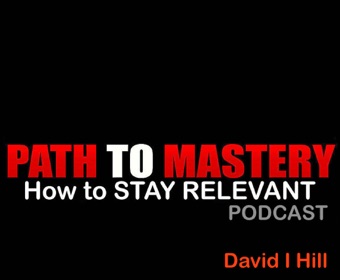 Path to Mastery
Path to Mastery
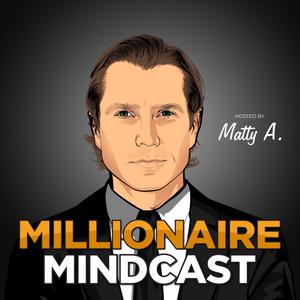 Millionaire Mindcast
Millionaire Mindcast
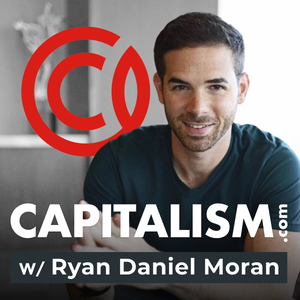 Capitalism.com with Ryan Daniel Moran
Capitalism.com with Ryan Daniel Moran
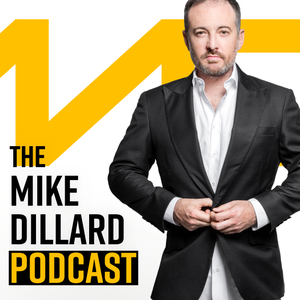 The Mike Dillard Show
The Mike Dillard Show